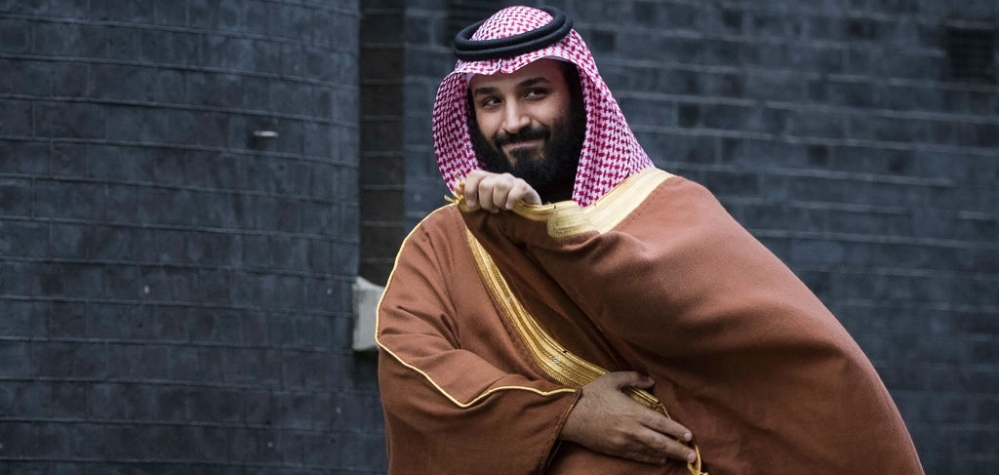Alwaght- As the crisis in the West Asia region winds down with the defeat of the ISIS terrorist group in its bastions Syria and Iraq, Lebanon rises to significance in the political puzzle of the regional equations. The US, the Israeli regime, and Saudi Arabia know it wll that very soon the regional focus will return to the Palestinian cause and the Axis of Resistance will again restore fight against Tel Aviv. So, the trio tries to get the developments out of their current course and channel them in the direction it desires.
Al-Akhbar newspaper in a report published on August 27 claimed Saud regime sought to shift the war from Yemen to Lebanon. The Lebanese daily said Crown Prince Mohammed bin Salman, Foreign Minister Adel al-Jubeir, intelligence chief Khaled al-Humaidan, and an aide to the crown prince gathered together in Riyadh to discuss the outcomes of the war in Yemen and its negative impacts on the position of the Saudi monarchy in the Arab and Muslim world. Al-Akhbar continued that they also debated ways to reverse the losses by creating a new balance of power with Iran in the region. According to the daily, Prince Mohammed was recommended to transfer the conflict from Yemen to Lebanon, home of Iran's closest ally Hezbollah resistance movement.
According to analysts, Saudi Arabia could have three motivations to destabilize Lebanon:
Making Lebanon center of a broader regional crisis
While the national governments in Syria and Iraq have nearly obliterated terrorism in their countries after years of fighting which means the region is moving towards calm, the young Saudi prince is dissatisfied with the outcome and seeks to drag the region to a new crisis in which Lebanon stands in the middle. It should be known that the Saudi struggle to destabilize Lebanon is never new. From years, the Saudi rulers have been taking pains to push the small Arab country into a crisis. For example, in 2014, the year ISIS emerged in Syria and then Iraq, the Saudis pressed heavily to transfer the terrorist group to Lebanon and took practical steps towards this end. The kingdom’s intelligence facilitated ISIS fighters' presence in Arsal town in the northwest of the capital Beirut. However, they were neutralized in the area by the Hezbollah fighters and the army troops. So, the group failed to build a base for it in Lebanon, to the Saudi Arabian frustration.
This Saudi Arabian plot was followed by a largely naïve and hilarious scenario in November 2017. When the Prime Minister Saad Hariri of Lebanon was in a trip to Riyadh, bin Salman reportedly detained him forced him to resign during a live speech in which he also criticized Iran and Hezbollah. Saudis sought to fuel a new crisis in Lebanon behind the government's failure to stand. But the game turned into a political scandal to the monarchy as they were forced to free the Lebanese premier who withdrew his resignation back in home.
Another scenario was played during Lebanon’s election. During the early May parliamentary election, Saudi Arabia provided the Riyadh-aligned March 14 Alliance with $200 million in campaigning aids, in opposition to Hezbollah and its allies. But the Saudi cash failed to by Lebanese peoples' vote. Hezbollah and its allies managed to win 74 of 128 seats, the first in the history of the country’s parliamentary vote. Amid Hezbollah win, the Saudis found themselves the losers of Lebanon’s home game. This, however, does not mean they stop their destabilizing attempts. Their latest effort is to handicap the government formation process in a bid to block a government in which Hezbollah takes a central role.
Syria war and Tel Aviv nightmare
Hezbollah has a huge presence in Syria, where it helps the Syrian government forces' campaign against ISIS and other terror factions fighting Damascus. Years of fighting along with the Syrian army and other allies in Syria have honed Hezbollah's combat skills. Involvement in the Syrian conflict also brought the Lebanese movement close to the Israeli borders from the Syrian side. This situation is never a good news to the Saudi and Israeli leaders. Tel Aviv asks for help from the US to deal with the situation. Last month the Americans proposed that the UN troops in Lebanon get expanded leverage and area of coverage. The US National Security Advisor John Bolton on August 9 called for the UN mission in Lebanon, United Nations Interim Force in Lebanon (UNIFIL), to have greater powers on the borders with the Israeli regime. He proposed deploying them to the Golan Heights to set up a security belt around the occupied Palestine's borders with Lebanon and Syria.
The Saudis are accomplices to this plan. They try to sow a domestic conflict in Lebanon to embroil Hezbollah in a home crisis to check its growing military and political foothold across the region. Destabilization of Lebanon is the only available way now as the Syrian government has officially asked Hezbollah to help with anti-terror combat and so the West has a difficult way to force the movement out of Syria under the excuse of illegal presence on the Syrian battlegrounds.
Saving face by undermining the Axis of Resistance
Yet another reason to drag the war to Lebanon is the last struggle to mend Riyadh's severely damaged image in the region. After 2011, the year marking Islamic awakening, Saudi Arabia received huge defeats in a multi-player, multi-fronted regional game. On the opposite side, the Iran-led Resistance camp came out victorious.
Now bin Salman wants to reshuffle the regional equations by playing a new security game to reverse the post-2011 policy defeats. For the largely inexperienced young Saudi leader, this all goes through impairment of the Resistance. But the Saudi incapability is time-exhibited. The Arab monarchy is far from holding potentials for the job.



























